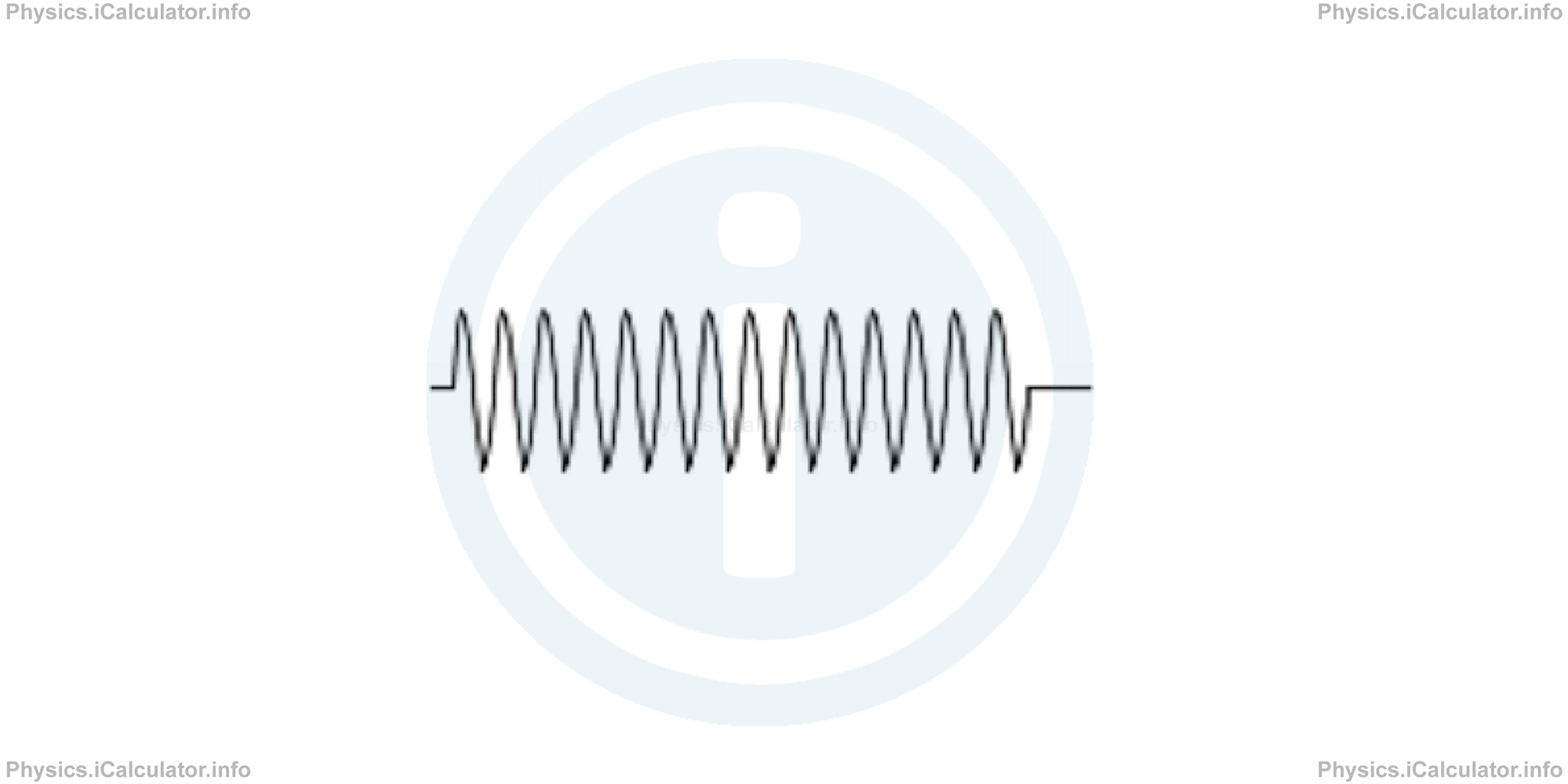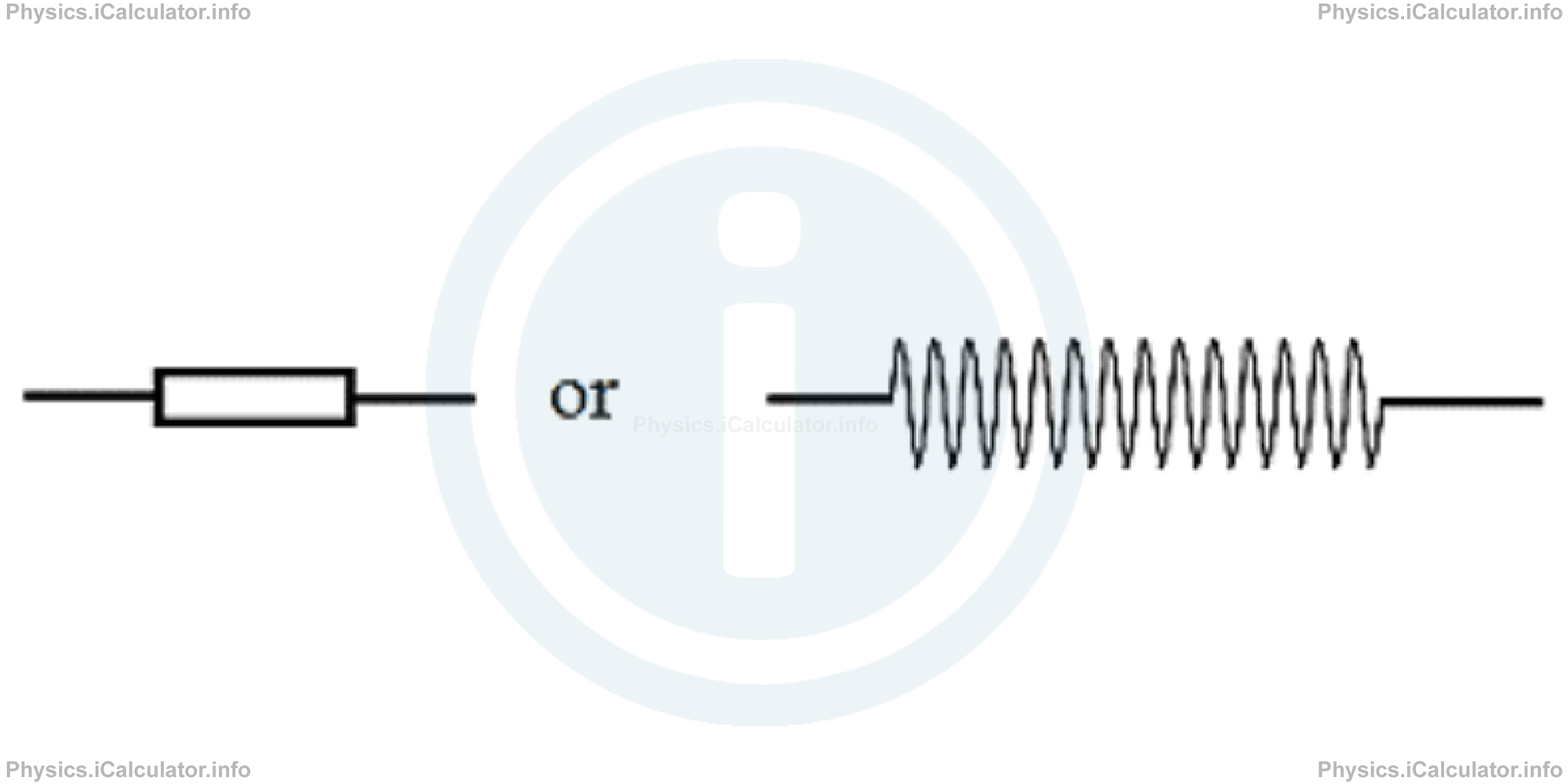Menu
Physics Lesson 15.2.3 - Resistors
Please provide a rating, it takes seconds and helps us to keep this resource free for all to use
Welcome to our Physics lesson on Resistors, this is the third lesson of our suite of physics lessons covering the topic of Electric Resistance. Combinations of Resistors, you can find links to the other lessons within this tutorial and access additional physics learning resources below this lesson.
Resistors
Resistors are electrical appliances that are used to convert electrical energy into heat. This is achieved by winding a conducting wire in a spring-like form, in order to confine a long wire in a narrow space.

As discussed in the previous paragraph, longer the conductor, higher the resistance it displays to the current flow. Therefore, resistors usually have a high resistance.
Practically, all electric appliances installed in a circuit have a certain resistance, so they can be considered as resistors. However, typically we refer to resistors when the main purpose of an electrical appliance is to convert the electrical energy into heat.
The symbol of resistor in an electric circuit is

You have reached the end of Physics lesson 15.2.3 Resistors. There are 5 lessons in this physics tutorial covering Electric Resistance. Combinations of Resistors, you can access all the lessons from this tutorial below.
More Electric Resistance. Combinations of Resistors Lessons and Learning Resources
Whats next?
Enjoy the "Resistors" physics lesson? People who liked the "Electric Resistance. Combinations of Resistors lesson found the following resources useful:
- Resistors Feedback. Helps other - Leave a rating for this resistors (see below)
- Electrodynamics Physics tutorial: Electric Resistance. Combinations of Resistors. Read the Electric Resistance. Combinations of Resistors physics tutorial and build your physics knowledge of Electrodynamics
- Electrodynamics Revision Notes: Electric Resistance. Combinations of Resistors. Print the notes so you can revise the key points covered in the physics tutorial for Electric Resistance. Combinations of Resistors
- Electrodynamics Practice Questions: Electric Resistance. Combinations of Resistors. Test and improve your knowledge of Electric Resistance. Combinations of Resistors with example questins and answers
- Check your calculations for Electrodynamics questions with our excellent Electrodynamics calculators which contain full equations and calculations clearly displayed line by line. See the Electrodynamics Calculators by iCalculator™ below.
- Continuing learning electrodynamics - read our next physics tutorial: Electric Potential Difference (Voltage). Ohm's Law
Help others Learning Physics just like you
Please provide a rating, it takes seconds and helps us to keep this resource free for all to use
We hope you found this Physics lesson "Electric Resistance. Combinations of Resistors" useful. If you did it would be great if you could spare the time to rate this physics lesson (simply click on the number of stars that match your assessment of this physics learning aide) and/or share on social media, this helps us identify popular tutorials and calculators and expand our free learning resources to support our users around the world have free access to expand their knowledge of physics and other disciplines.
Electrodynamics Calculators by iCalculator™
- Amount Of Substance Obtained Through Electrolysis Calculator
- Charge Density Calculator
- Electric Charge Stored In A Rc Circuit Calculator
- Electric Field In Terms Of Gauss Law Calculator
- Electric Power And Efficiency Calculator
- Electron Drift Velocity Calculator
- Equivalent Resistance Calculator
- Force Produced By An Electric Source Calculator
- Joules Law Calculator
- Ohms Law Calculator
- Potential Difference In Rc Circuit Calculator
- Resistance Due To Temperature Calculator
- Resistance Of A Conducting Wire Calculator